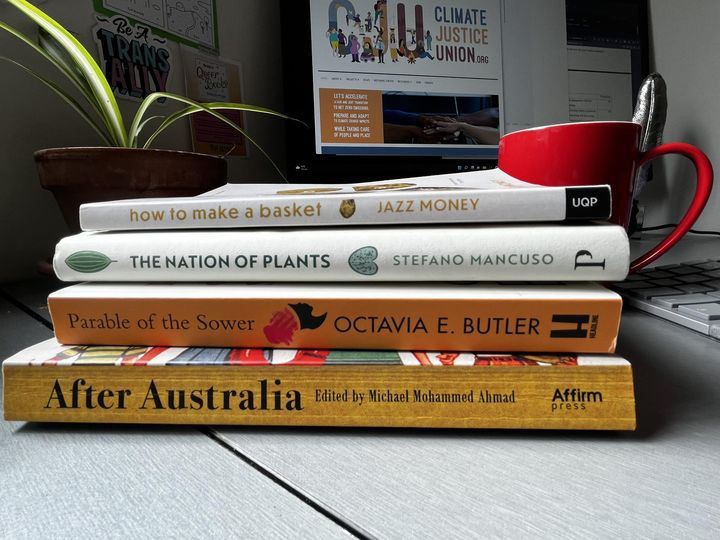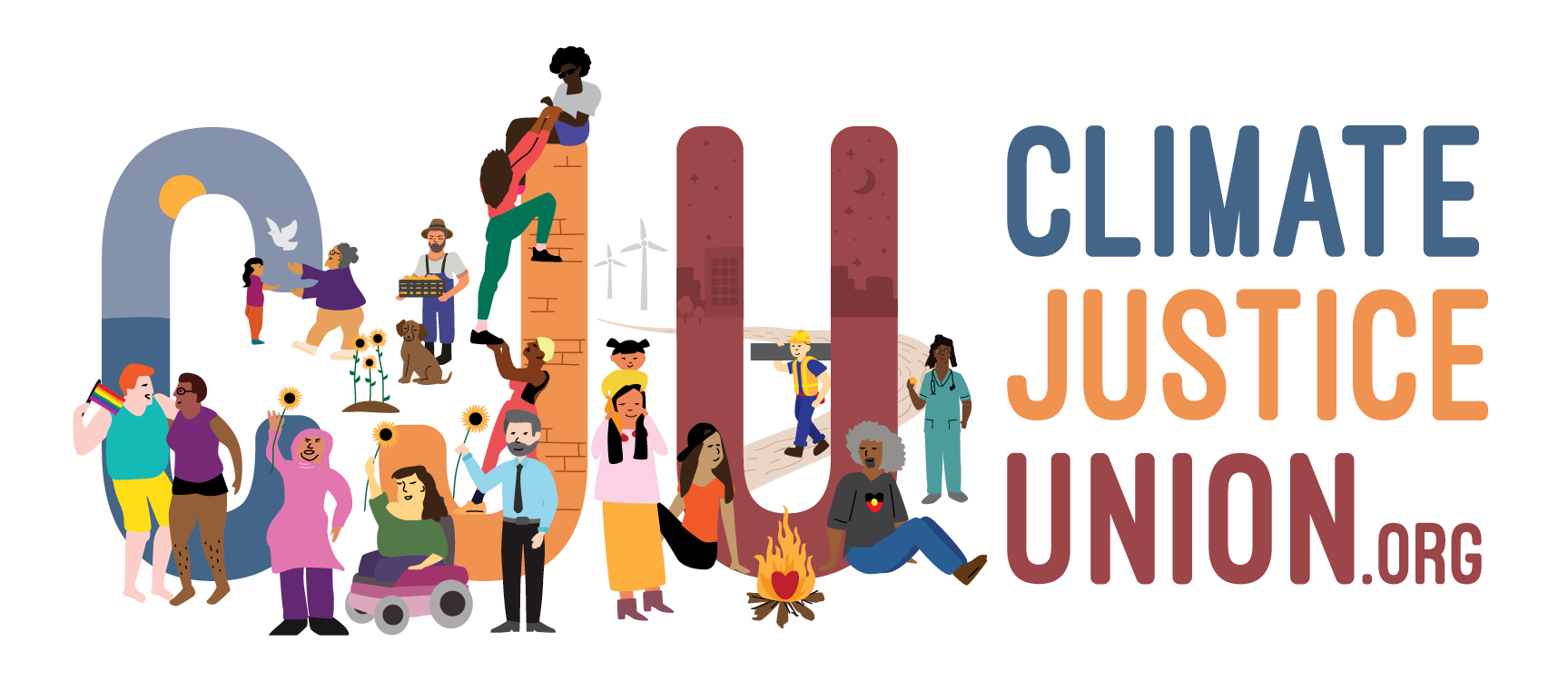|
The Powers That Might become (Reading Group #4)
In Kambarang/Birak, the circle theme was The Powers that May Become. The theme invites us to consider how if the future is not yet written how we can imagine power working in ways that climate justice and it offered a way to connect the previous themes. We chose these seasons of birth and young because we recognise that everything we need for a safe climate and just society is here with us now, it just needs to be nurtured to flourish.
 Feast: The Parable of the Sower, by Octavia Butler
Feast: The Parable of the Sower, by Octavia Butler
Taster: Message from the Ngurra Palya, by Ambelin Kwaymullina from “After Australia” (poem)
and/or Address to the United Nations General Assembly, epilogue from “The Nation of Plants” by Stefano Mancuso
Ambiance: We Rise, from “How to Make a Basket” by Jazz Money (Poem)
Notes
We had a roaming conversation which always circled back to what other ways of being and doing could look and feel like - we dreamed of lush suburbs and cities full of native plants, common spaces, community connection and a society that values the arts.
We agreed that the collective will become more powerful and triumph over individualism and considered the impacts of a cooperative rather than competitive paradigm.
We noticed that what could become possible takes many many small actions that could and collectivise and we likened this to the power of a rain drop - one drop isn’t much but the impact of many drops can erode concrete, and collect in rivers that can calve out canyons.
We discussed how Noongar, Aboriginal and Torres Strait Islanders and many other Indigenous communities lived and continue to have a relationship with Country and time which is fosters not only climate justice but other ways of thriving. The group, all settlers, talked about how it's difficult to unlearn colonial and patriarchal relationships and ways of being - for example linear time and short term planning. We pondered what our societies would organise and plan with more circular concept of time and 7 generation planning.
We yarned about who needs to be involved in that planning and who could hold more power in society. The concept of 'nothing about us without us' came up and those with lived experience of disability talked about the frustration of waiting to get the services they need and ask for while 'experts' and decision makers decide what research or policy or conference is needed next. We wondered what it will take for those with power and influence to hand over power and agreed that urgency and good intentions are poor excuses for injustice.
This linked all this to the relational concept of 'Right Way' - where good relationships are the foundation of all decision making, development and climate action. Right Way includes Free Prior Informed Consent (FPIC), accountability to community, dignified and respectful treatment of others when working together. Someone shared a quote from the Indigenous Dessert Rangers Alliance "the right way is long way. The long way is the fastest way".
We also discussed:
-
Donna Haraway’s concept: “To be one is always to become with many” in When Species Meet.
-
Nikola Harvey’s quote “We don’t need to change everyone around us, we only need to create a space for”
-
Living on Stolen Land by Kwaymullina (see also it's review in the Sydney review of books) paricular the call to “stop asking WHAT start asking HOW”
Some of the HOWs we identified were:
- Redistribution of power
- We don’t need more materials we need more connections
- Not just about ways of being, but ways of “becoming with”
- Spaces for full range of emotions, whole selves and diversity of lived experience
- The right way is the long way and it is the fastest way.
Discussion prompts:
- If the future is not fixed what future do you like to imagine?
- What do you want to be 'powerful' in the future?
- How do you blend your ideas about healing Country, grief and hope in your vision of the future?
- What does this teach you about climate justice.
Keen to explore this theme yourself or with friends? We encourage you to buy your books from independent book stores (such as Rabble Books & Games), borrow from libraries, or share books among friends..

